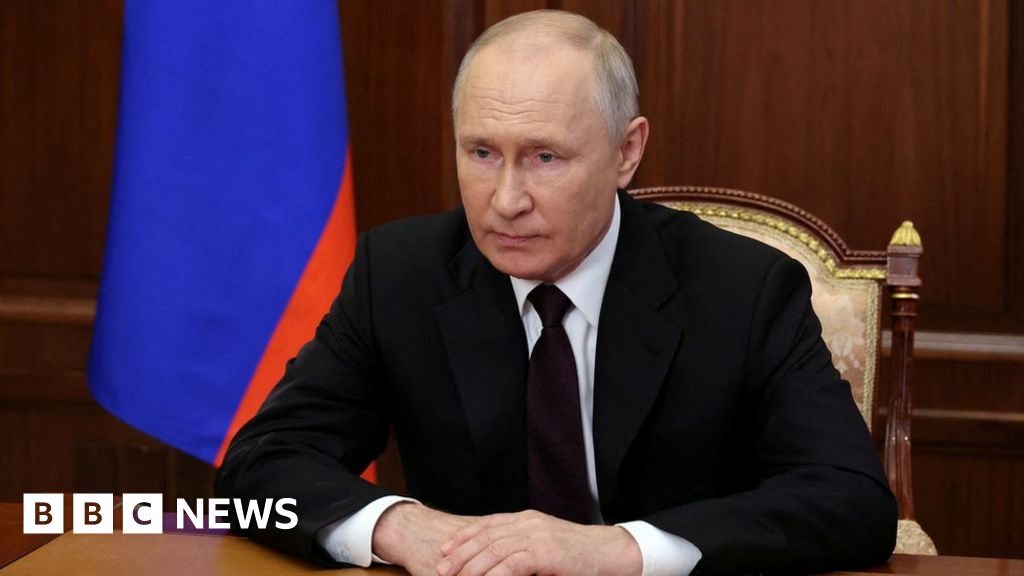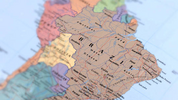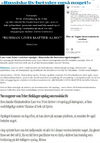Michael B-C
The Living Force
An excellent and thorough overview of the current situation across a number of issues: Brian Berletic of the New Atlas interviews Moscow based commentator Mark Sleboda.
- Prigozhin’s plane crash (excellent and comprehensive background on Wagner and a run down on the multiple suspects - with all having strong reasons and means - but he doesn't come down on a particular party being the obvious culprit - and as he says, we are unlikely to ever know for sure)
- Sabotage units reaching Crimea
- The complexity and difficult for Russia in maintaining control over the Black Sea
- The current state of Ukrainian offensive as it reaches the 3 month mark
- What happens after Ukraine’s offensive exhausts itself…
- Implications of the expansion of BRICS
I think Marks assessment that the war is likely to go on for years is important. All the current online chatter concerning the Russians now moving to large scale offensive capabilities, sweeping the remnants of the Ukrainian army before them, is to his mind wildly out of line with the harsh realities of fighting such large scale operations in densely urbanized and heavily fortified terrain. As he points out the Russians have fought this war to date primarily on a defensive model, especially since the SMO moved to a war footing, and there are few signs of the army being able or willing to take on the risks and massive causalities that full frontal warfare would likely unleash. Attrition and slow incremental advances will therefore likely remain the modus operandi for the foreseeable future.
I tend to agree with this line of thinking; the Russians are likely to maintain a style of war that does not lead to dramatic dashes west or actions that forces the West to directly intervene. Russia is still in the early days of transitioning the industrial and state apparatus on to a large militarized war footing and direct war with NATO is something it will want to delay for as long as is possible - if it ever comes - and so will continue to fight the war in such a manner that allows it to buy the time to build up that capacity into an insurmountable threat - and that's not there yet and may take many years. NATO must be faced with the either go nuclear from day one option or not get directly involved at all because if you do you will very quickly suffer immense damage and defeat on the battlefield. He rightly points out that Ukraine is but one aspect of a much larger process and war - including the Middle East (e.g. Syria), Africa and elsewhere, and the entire process is complex and politically multifaceted. In other words this is not going to suddenly change character and run along the lines of a Hollywood film script.
- Prigozhin’s plane crash (excellent and comprehensive background on Wagner and a run down on the multiple suspects - with all having strong reasons and means - but he doesn't come down on a particular party being the obvious culprit - and as he says, we are unlikely to ever know for sure)
- Sabotage units reaching Crimea
- The complexity and difficult for Russia in maintaining control over the Black Sea
- The current state of Ukrainian offensive as it reaches the 3 month mark
- What happens after Ukraine’s offensive exhausts itself…
- Implications of the expansion of BRICS
I think Marks assessment that the war is likely to go on for years is important. All the current online chatter concerning the Russians now moving to large scale offensive capabilities, sweeping the remnants of the Ukrainian army before them, is to his mind wildly out of line with the harsh realities of fighting such large scale operations in densely urbanized and heavily fortified terrain. As he points out the Russians have fought this war to date primarily on a defensive model, especially since the SMO moved to a war footing, and there are few signs of the army being able or willing to take on the risks and massive causalities that full frontal warfare would likely unleash. Attrition and slow incremental advances will therefore likely remain the modus operandi for the foreseeable future.
I tend to agree with this line of thinking; the Russians are likely to maintain a style of war that does not lead to dramatic dashes west or actions that forces the West to directly intervene. Russia is still in the early days of transitioning the industrial and state apparatus on to a large militarized war footing and direct war with NATO is something it will want to delay for as long as is possible - if it ever comes - and so will continue to fight the war in such a manner that allows it to buy the time to build up that capacity into an insurmountable threat - and that's not there yet and may take many years. NATO must be faced with the either go nuclear from day one option or not get directly involved at all because if you do you will very quickly suffer immense damage and defeat on the battlefield. He rightly points out that Ukraine is but one aspect of a much larger process and war - including the Middle East (e.g. Syria), Africa and elsewhere, and the entire process is complex and politically multifaceted. In other words this is not going to suddenly change character and run along the lines of a Hollywood film script.
Last edited:




 ). In this case I think ritter is partly right, as I said in my opinion this matter exceeds by far the Ukrainian topic (and maybe it is true therefore that we are OT here). I am a bit doubtful about the incident due to weapons on board but really anything is possible even in political terms. It will be interesting in this regard to see the outcome of the official investigation. The international chessboard in any case doesn't give a damn of that. It is a kind of minor happening somehow foreseen in the general repositioning. The Russian federation can no longer indulge in the "wild west" of people like PRIG both domestically (done) and internationally (ongoing). This is not to say that they did not consciously use them earlier and successfully for exactly what they were. Any hypocrisy in this regard I think is to be avoided even though it is part of the game
). In this case I think ritter is partly right, as I said in my opinion this matter exceeds by far the Ukrainian topic (and maybe it is true therefore that we are OT here). I am a bit doubtful about the incident due to weapons on board but really anything is possible even in political terms. It will be interesting in this regard to see the outcome of the official investigation. The international chessboard in any case doesn't give a damn of that. It is a kind of minor happening somehow foreseen in the general repositioning. The Russian federation can no longer indulge in the "wild west" of people like PRIG both domestically (done) and internationally (ongoing). This is not to say that they did not consciously use them earlier and successfully for exactly what they were. Any hypocrisy in this regard I think is to be avoided even though it is part of the game